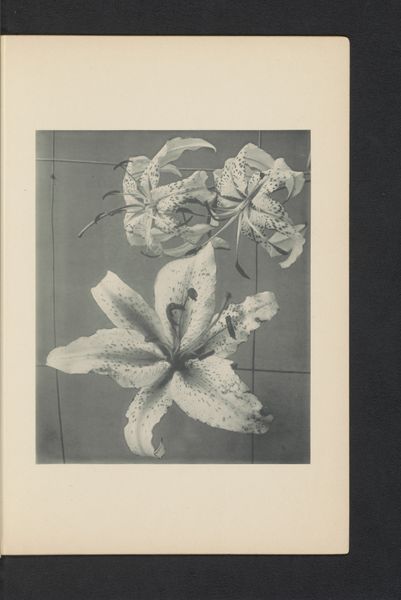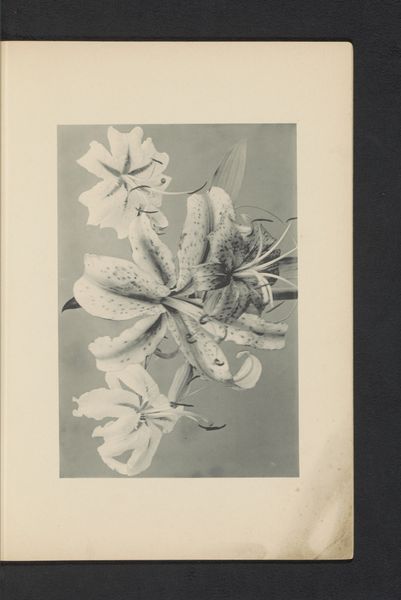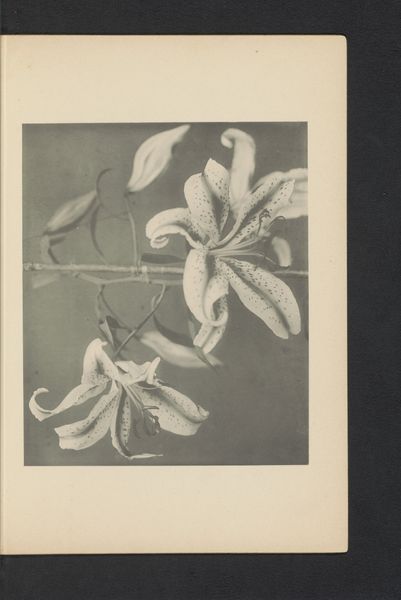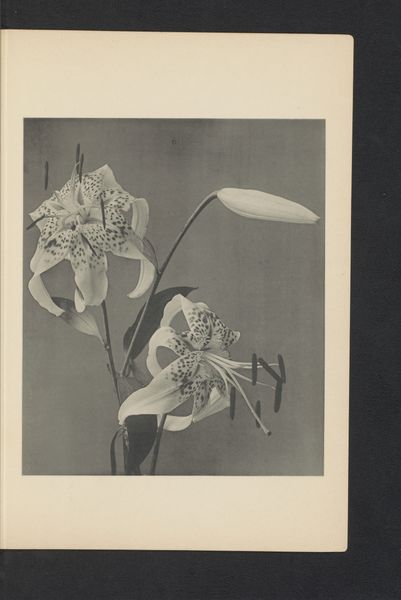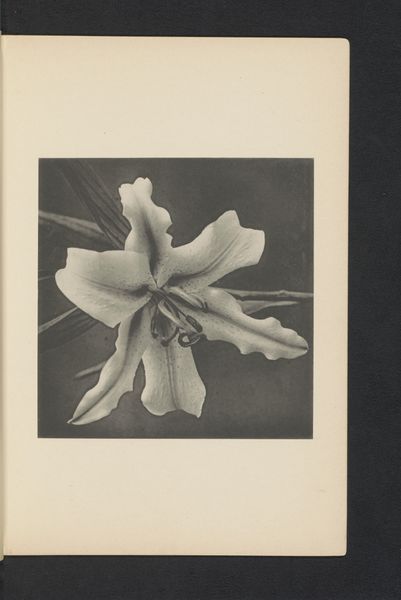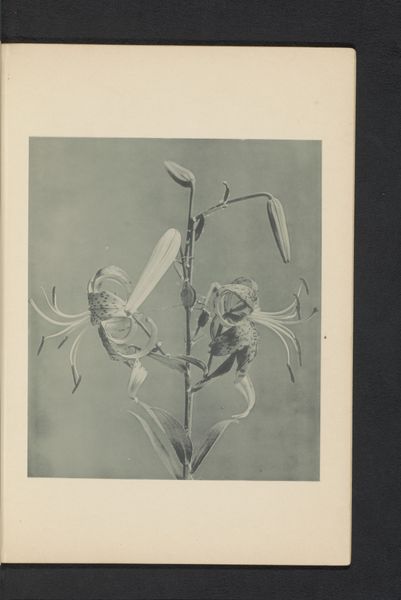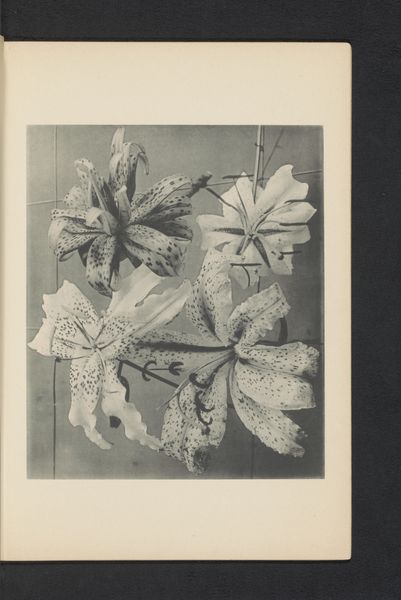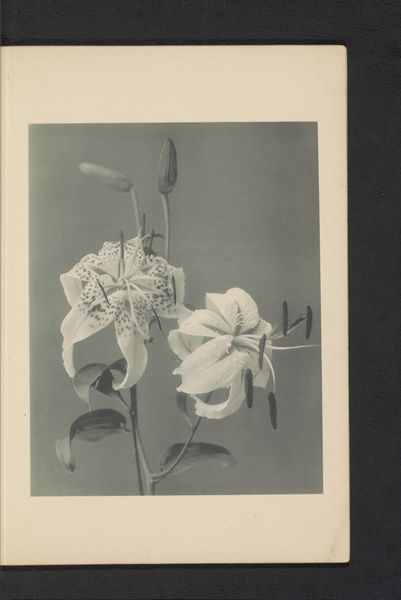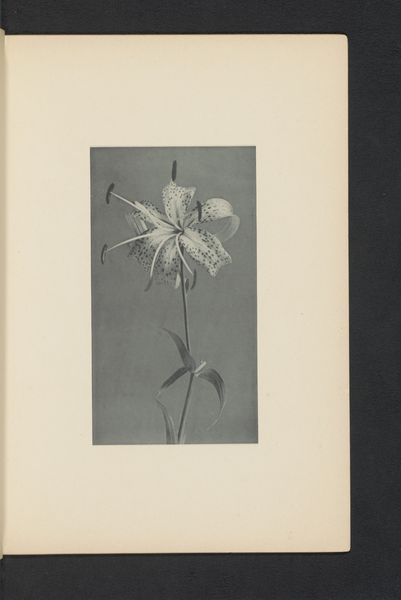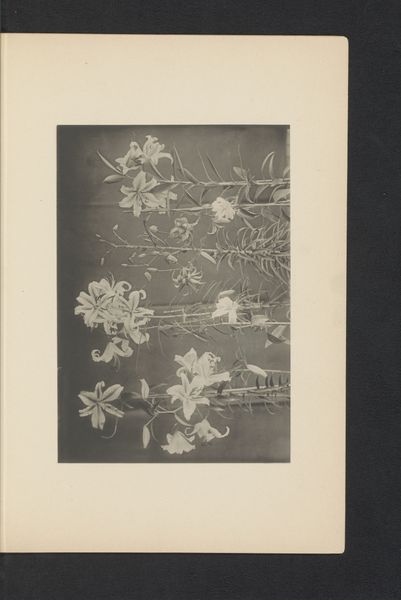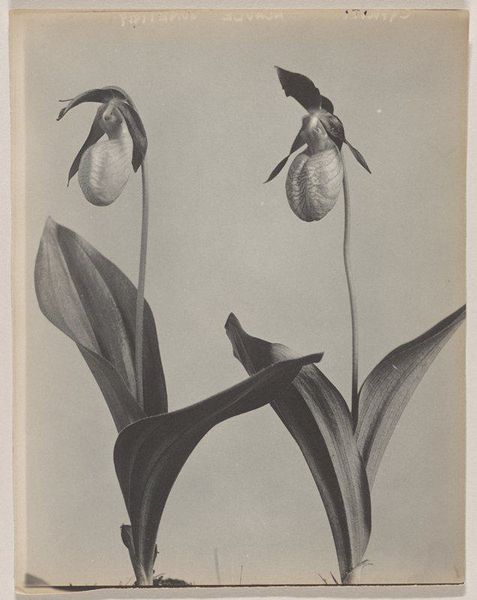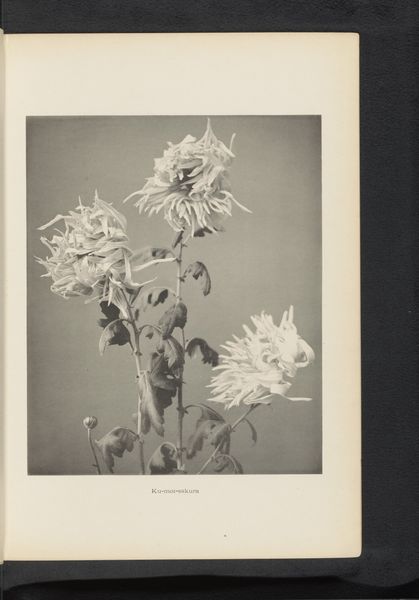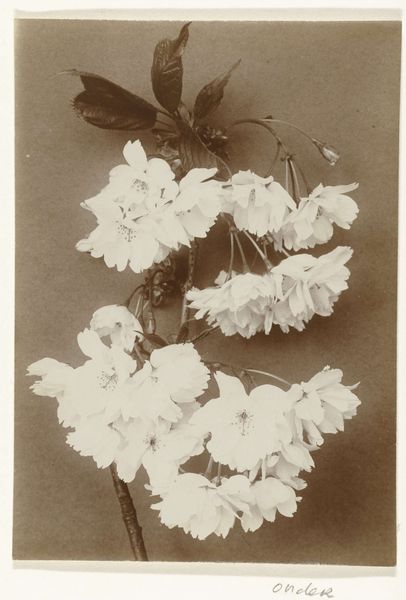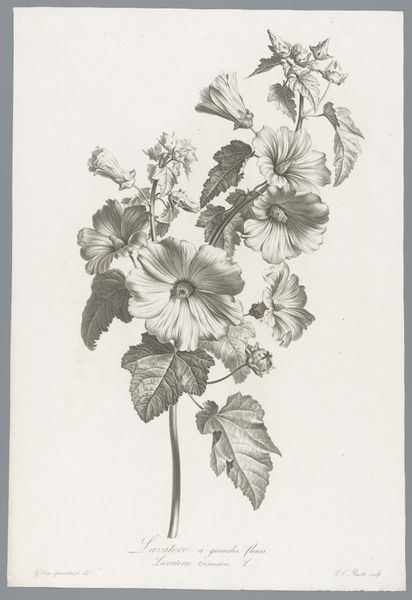
print, paper, photography, gelatin-silver-print
#
aged paper
#
homemade paper
#
paper non-digital material
# print
#
sketch book
#
personal journal design
#
paper texture
#
paper
#
photography
#
personal sketchbook
#
gelatin-silver-print
#
sketchbook drawing
#
sketchbook art
#
design on paper
Dimensions: height 274 mm, width 223 mm
Copyright: Rijks Museum: Open Domain
Kazumasa Ogawa captured this photograph of a Japanese lily using a glass plate and a camera. The photographic process itself, while seemingly straightforward, requires significant preparation: coating and sensitizing the plate, carefully composing the image, accurately calculating exposure time, and developing the negative. Ogawa likely used the collotype process, a printing technique that allows for a wide range of tones. This is achieved by coating a glass plate with a light-sensitive gelatin emulsion, exposing it to a negative, and then using it to print the image. The texture and depth we see in the lily's petals are a direct result of this method, which allows for subtle gradations of tone. Ogawa ran a photography studio with many employees, so this kind of photography was labor-intensive, and yet he brought a distinct aesthetic sensibility to his images, using a new technology in the service of art. Looking at the image this way, we can see how the worlds of science, labor, and art intertwine.
Comments
No comments
Be the first to comment and join the conversation on the ultimate creative platform.
